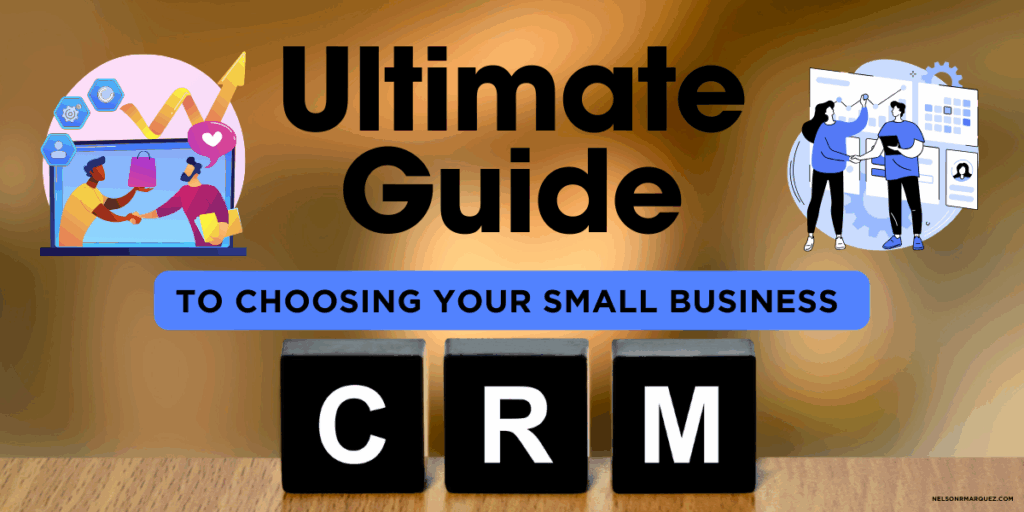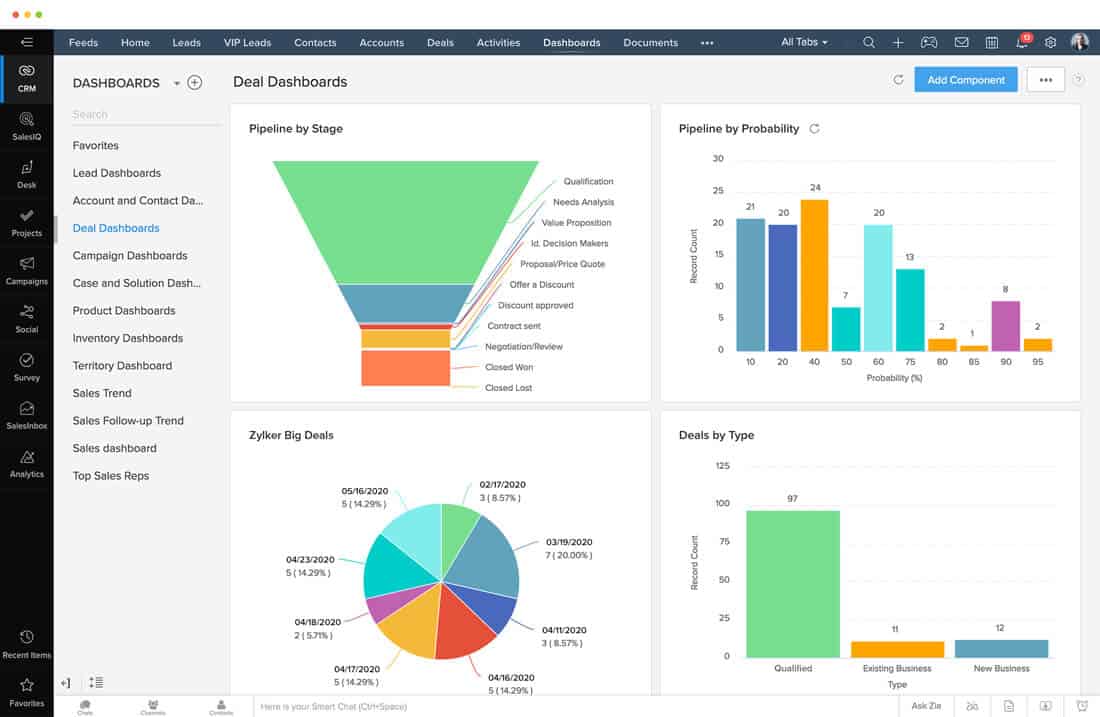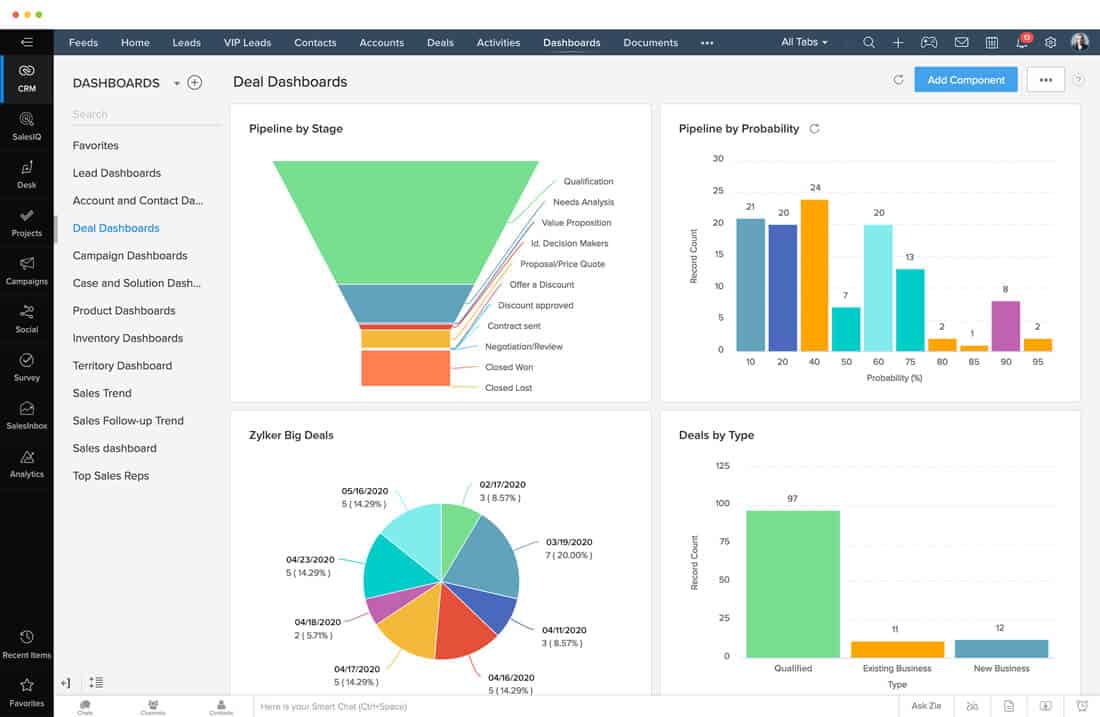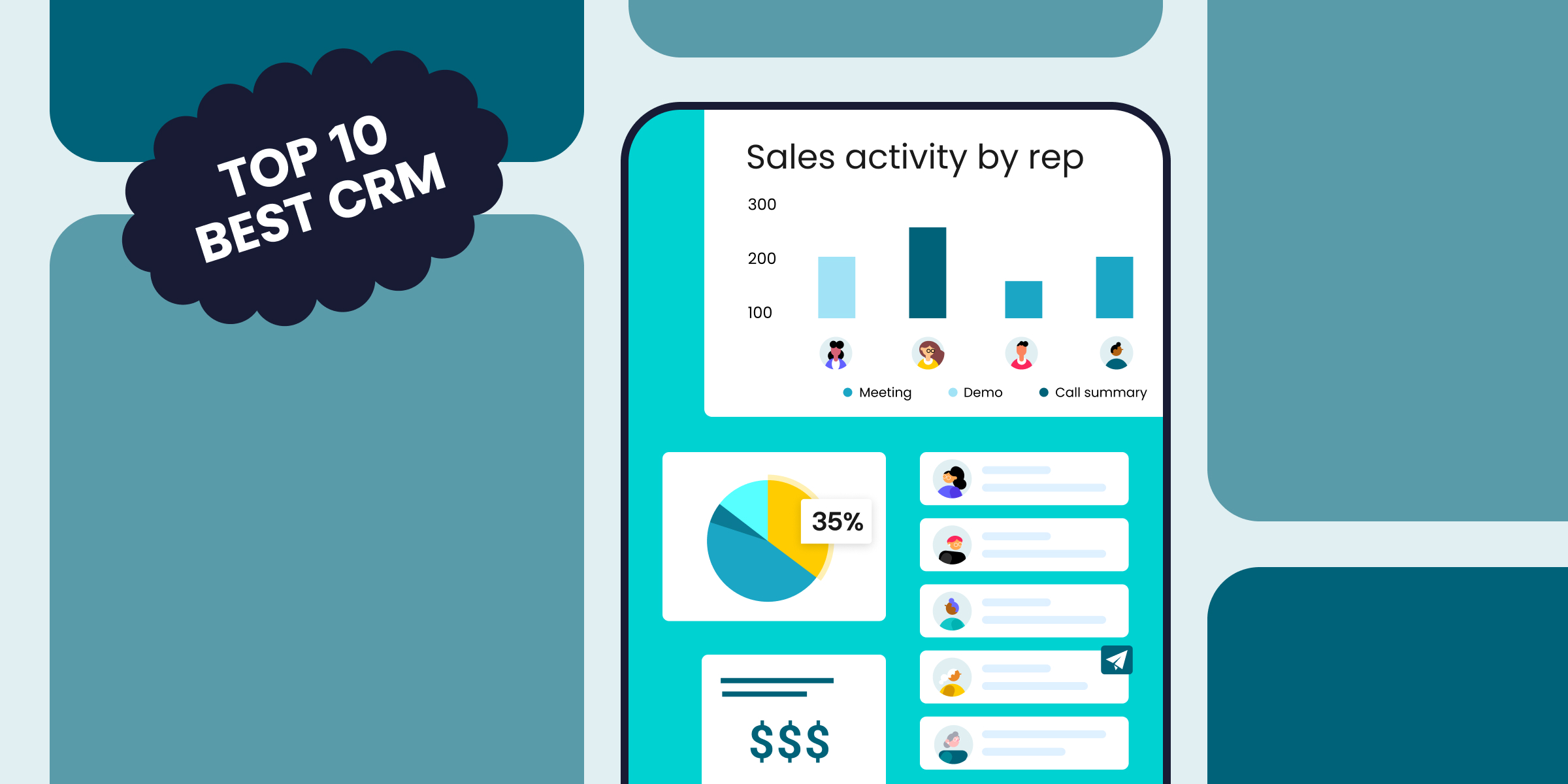Small Business CRM Maintenance in 2025: A Practical Guide to Success

Small Business CRM Maintenance in 2025: A Practical Guide to Success
The world of customer relationship management (CRM) is constantly evolving. As we approach 2025, small businesses need to be more proactive than ever in maintaining their CRM systems. This isn’t just about keeping the software running; it’s about ensuring your CRM continues to be a valuable asset that drives growth, improves customer satisfaction, and optimizes your business operations. This comprehensive guide will delve into the essential aspects of small business CRM maintenance in 2025, providing practical advice, actionable strategies, and forward-thinking insights to help you succeed.
Why CRM Maintenance is Crucial for Small Businesses in 2025
In today’s competitive landscape, small businesses face enormous pressure to deliver exceptional customer experiences. A well-maintained CRM system is the cornerstone of this effort. Neglecting CRM maintenance can lead to a cascade of problems, including data inaccuracies, system inefficiencies, frustrated employees, and, ultimately, lost revenue. In 2025, the stakes are even higher. Here’s why:
- Data Integrity: Accurate and up-to-date customer data is fundamental. Without it, your marketing campaigns will miss the mark, sales efforts will be ineffective, and customer service will suffer.
- Security Threats: Cyber threats are becoming more sophisticated. Regular maintenance ensures your CRM system is protected against vulnerabilities.
- Integration Challenges: Businesses rely on multiple software systems. Maintenance ensures seamless integration and data flow between your CRM and other platforms.
- User Adoption: A well-maintained CRM is more user-friendly, encouraging higher adoption rates and maximizing the return on your investment.
- Compliance Requirements: Data privacy regulations are becoming increasingly stringent. Maintenance helps you stay compliant with these evolving requirements.
Key Components of CRM Maintenance in 2025
Effective CRM maintenance encompasses a range of activities, each contributing to the overall health and performance of your system. Here’s a breakdown of the key components you should focus on:
1. Data Quality Management
Data quality is the lifeblood of any CRM system. Maintaining data quality involves several key activities:
- Data Cleansing: Regularly scrub your database to remove duplicate entries, correct errors, and standardize data formats. Consider using automated data cleansing tools to streamline this process.
- Data Enrichment: Supplement your existing data with additional information from external sources. This can provide a more complete view of your customers.
- Data Governance: Establish clear policies and procedures for data entry, storage, and access. This will help maintain data accuracy and consistency.
- Data Backup and Recovery: Implement a robust data backup and recovery plan to protect against data loss in the event of a system failure or other disaster.
2. System Performance Optimization
A slow or inefficient CRM system can frustrate users and hinder productivity. Optimizing system performance is essential for a positive user experience.
- Regular System Audits: Conduct regular audits to identify performance bottlenecks and areas for improvement.
- Database Optimization: Optimize your database to improve query performance and reduce loading times.
- Hardware and Software Updates: Keep your CRM software and hardware up to date to ensure optimal performance and security.
- Performance Monitoring: Implement performance monitoring tools to track system performance and identify potential issues before they impact users.
3. Security and Compliance
Protecting your customer data is paramount. Security and compliance should be a top priority in your CRM maintenance strategy.
- Security Audits: Conduct regular security audits to identify vulnerabilities and assess your security posture.
- Access Control: Implement strict access control measures to limit access to sensitive data.
- Data Encryption: Encrypt sensitive data to protect it from unauthorized access.
- Compliance with Regulations: Ensure your CRM system complies with relevant data privacy regulations, such as GDPR and CCPA.
- Regular Security Training: Train your employees on security best practices to minimize the risk of data breaches.
4. User Training and Support
Your CRM system is only as effective as the people who use it. Providing adequate training and ongoing support is crucial for user adoption and satisfaction.
- Initial Training: Provide comprehensive training to all new users on how to use the CRM system.
- Ongoing Training: Offer ongoing training to keep users up-to-date on new features and best practices.
- Documentation: Create clear and concise documentation, including user manuals and FAQs.
- Help Desk Support: Provide a help desk or support system to address user questions and resolve technical issues.
- Feedback Mechanisms: Establish feedback mechanisms to gather user input and identify areas for improvement.
5. Integration Management
Most small businesses use a variety of software systems. Seamless integration between your CRM and other platforms is critical for data flow and operational efficiency.
- Integration Audits: Regularly audit your integrations to ensure they are functioning correctly.
- Data Mapping: Maintain accurate data mapping between your CRM and other systems to ensure data consistency.
- API Management: Manage your APIs to ensure they are secure and reliable.
- Integration Updates: Keep your integrations up-to-date to ensure compatibility with the latest software versions.
Best Practices for CRM Maintenance in 2025
Implementing these best practices will help you create a robust and effective CRM maintenance strategy:
- Develop a Maintenance Plan: Create a detailed maintenance plan that outlines all the tasks that need to be performed, the frequency with which they should be performed, and who is responsible for each task.
- Automate Tasks: Automate as many maintenance tasks as possible to save time and reduce the risk of human error.
- Use CRM-Specific Tools: Leverage CRM-specific tools and features designed to streamline maintenance tasks.
- Outsource When Necessary: Consider outsourcing certain maintenance tasks to a qualified CRM consultant or managed service provider.
- Regularly Review and Update Your Plan: Your CRM maintenance plan should be a living document that is regularly reviewed and updated to reflect changes in your business needs and the CRM landscape.
- Prioritize Proactive Maintenance: Focus on proactive maintenance activities, such as regular data cleansing and system performance optimization, to prevent problems before they occur.
- Establish Key Performance Indicators (KPIs): Define KPIs to measure the effectiveness of your CRM maintenance efforts. Track metrics such as data accuracy, system uptime, and user adoption rates.
- Stay Informed: Keep abreast of the latest CRM trends and best practices. Attend industry events, read industry publications, and participate in online forums.
- Foster a Culture of Data Quality: Emphasize the importance of data quality throughout your organization. Train your employees on data entry best practices and encourage them to report any data errors they encounter.
- Regularly Back Up Your Data: Implement a robust data backup schedule and test your recovery procedures regularly to ensure you can restore your data in the event of a disaster.
Choosing the Right CRM for Your Small Business in 2025
Selecting the right CRM system is the first step toward successful CRM maintenance. When choosing a CRM for your small business, consider the following factors:
- Scalability: Choose a CRM that can scale to accommodate your future growth.
- Ease of Use: Select a CRM that is user-friendly and easy to learn.
- Features and Functionality: Ensure the CRM offers the features and functionality you need to meet your business requirements.
- Integration Capabilities: Choose a CRM that integrates seamlessly with your existing software systems.
- Security: Prioritize a CRM with robust security features to protect your customer data.
- Cost: Consider the total cost of ownership, including software licenses, implementation costs, and ongoing maintenance fees.
- Vendor Reputation: Research the vendor’s reputation and customer reviews.
- Support and Training: Ensure the vendor offers adequate support and training resources.
- Mobile Accessibility: Look for a CRM with mobile accessibility to enable your team to access and update customer data on the go.
Leveraging Artificial Intelligence (AI) in CRM Maintenance
Artificial intelligence (AI) is poised to revolutionize CRM maintenance in 2025 and beyond. AI-powered tools can automate many maintenance tasks, improve data quality, and provide valuable insights.
- Data Cleansing and Enrichment: AI can automate data cleansing and enrichment tasks, such as identifying and correcting errors, removing duplicate entries, and supplementing your data with additional information.
- Predictive Analytics: AI can analyze your customer data to predict customer behavior, identify trends, and personalize customer interactions.
- Automated Reporting: AI can automate the creation of reports and dashboards, providing you with real-time insights into your CRM performance.
- Chatbots and Virtual Assistants: AI-powered chatbots and virtual assistants can provide instant support to your customers and employees, freeing up your team to focus on more complex tasks.
- Security Monitoring: AI can monitor your CRM system for security threats and automatically take corrective action.
Common CRM Maintenance Challenges and How to Overcome Them
Even with a well-defined maintenance plan, you may encounter challenges. Here’s how to address some common issues:
- Lack of Resources: Small businesses often lack the resources to dedicate to CRM maintenance. Consider outsourcing some tasks or investing in automation tools.
- Data Quality Issues: Poor data quality can undermine your CRM efforts. Implement data governance policies and invest in data cleansing tools.
- Integration Problems: Integrating your CRM with other systems can be complex. Work with experienced IT professionals or CRM consultants.
- User Adoption Issues: If users aren’t using the CRM, it won’t be effective. Provide adequate training and ongoing support.
- Security Threats: Cyber threats are constantly evolving. Stay vigilant, implement robust security measures, and regularly update your system.
- Time Constraints: CRM maintenance can be time-consuming. Prioritize tasks, automate where possible, and consider outsourcing.
The Future of CRM Maintenance: Trends to Watch
The CRM landscape is constantly evolving. Staying informed about the latest trends is crucial for long-term success. Here are some trends to watch in 2025 and beyond:
- Increased Automation: Automation will continue to play a major role in CRM maintenance, freeing up your team to focus on more strategic initiatives.
- Focus on Data Privacy: Data privacy regulations will become even more stringent, requiring businesses to prioritize data security and compliance.
- AI-Powered CRM: AI will become increasingly integrated into CRM systems, providing more personalized customer experiences and automating maintenance tasks.
- Mobile CRM: Mobile CRM solutions will become even more sophisticated, enabling your team to access and update customer data from anywhere.
- Integration with Emerging Technologies: CRM systems will integrate with emerging technologies such as the Internet of Things (IoT) and blockchain to provide even more valuable insights.
Conclusion: Embracing Proactive CRM Maintenance for Sustainable Growth
CRM maintenance is no longer an optional activity; it’s a critical component of success for small businesses in 2025. By prioritizing data quality, system performance, security, user training, and integration, you can ensure your CRM system remains a valuable asset that drives growth, improves customer satisfaction, and optimizes your business operations. Embracing a proactive approach to CRM maintenance, staying informed about the latest trends, and leveraging the power of AI will position your small business for sustainable growth and success in the years to come.
Investing in CRM maintenance is an investment in your business’s future. By taking the time to implement a comprehensive maintenance strategy, you are setting yourself up for long-term success. Don’t wait until problems arise; be proactive and ensure your CRM system is always running at its best. Your customers, your employees, and your bottom line will thank you for it.




